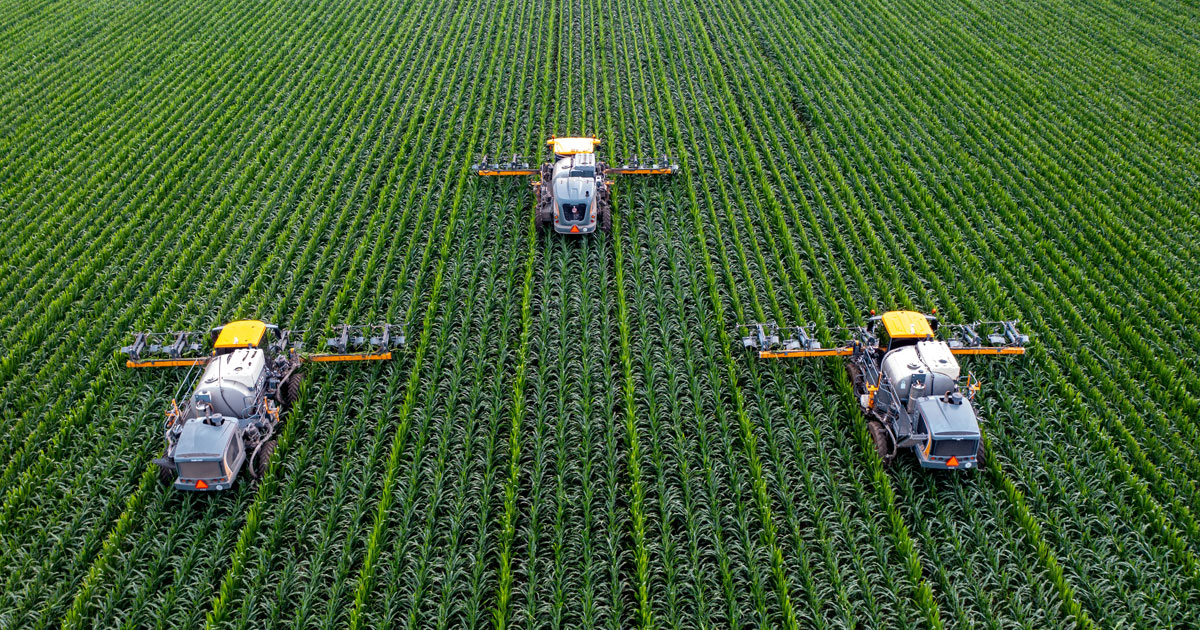Farmers have always faced an array of challenges that come with living off the land. Modern times are no different, with environmental and political concerns impacting all agriculture on a global scale. One advantage the modern farmer has is new technology. Since food supply is a pressing global concern going forward, many tech companies are turning their focus to the challenges of farming. Here are three of the biggest hurdles and solutions that can make a difference for your farm.

1. Drought and Water Rationing
According to the USDA’s Drought Mitigation Center, 378.5 million acres of crops across the country are affected by drought. Major droughts have plagued California for years, but recently, the problem has spread to the middle of the country. West of the Mississippi, drought and water rationing are major concerns.
Combining tech and irrigation can give your farm the edge it needs in times of historic drought. Smart irrigation systems save water by pinpointing where this key resource is most needed. These systems track crops’ performance relative to their water consumption with impressive accuracy, and they can throttle irrigation more precisely than outdated methods. Data from an advanced irrigation setup can form the backbone of a water conservation strategy to help your farm weather hard times. Experts around the world project that freshwater resources will continue to decline in the years to come, so investing in this system can only benefit your operation over the long term.
2. Labor Shortage
Dependable workers are crucial to any agricultural operation. Unfortunately, there are fewer people, and especially fewer young people, taking on these jobs. The farm labor shortage comes down to a few critical factors, including:
- High housing prices. It can be difficult to find roommates or affordable housing in many rural areas. Many farms can no longer offer a wage that lets a young person live on their own.
- Physical demands. With rising medical costs, people are less inclined to take jobs that can injure them over alternatives that pay just as well.
- Work-life balance. Farm work hours aren’t as competitive as hours in many other fields. The seasonal nature of the work is also a drawback.
- Stricter immigration policies. Undocumented immigrants comprise up to 50% of farm workers. Deportation has increased and options for transitioning to legal citizenship have decreased, reducing this labor pool.
Some tech companies are already developing robots capable of scanning surroundings and detecting the right crops to harvest. However, there are less extreme ways technology can aid the farm labor crisis.
Automation of less intensive work, such as seeding and sorting, can reduce labor demands without resorting to a robotic farm workforce. Look for areas of your agriculture business where the relevant technology already exists and is proven to work. Then, hire workers to operate this technology rather than workers to do everything by hand. This allows your farm to offer more competitive wages and less physical labor while also increasing productivity.
3. Supply Chain Disruption
The global supply chain affects farming in two ways: Importing necessary materials and exporting products. The supply chain is a challenge that seems out of your control at first glance, but there are ways to adapt. Look to reduce your dependence on imported materials and optimize your export strategy.
To save on fertilizer and herbicides, consider using the ancient technique of a cover crop to preserve your soil during the off season. Cereal rye is an inexpensive option.
If your concerns are on a larger scale, try the business strategy of vertical integration. Owning grain storage facilities, buying up a fertilizer plant of your own, or offering equipment repair can all give your farm an edge. Through ups and downs, don’t underestimate the importance of keeping hard data. These numbers can offer valuable insight into which strategies are most effective.
Facing unforeseen challenges is an inescapable part of farming. Make use of technology as costs rise and always keep an eye out for new solutions.
